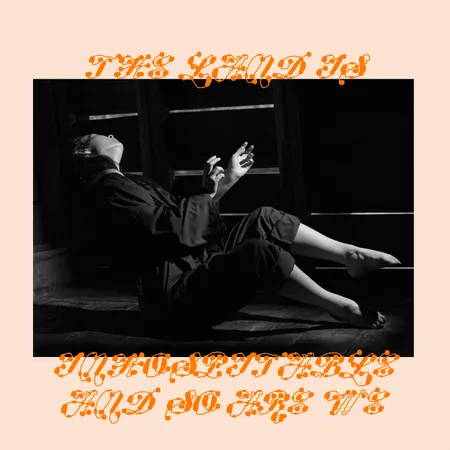After announcing retirement and the surprise release of Laurel Hell (2022), Mitski returns with a sharp seventh album, The Land Is Inhospitable and So Are We. The bold 11 track-record explores the raw, earnest feelings of the late 60s and early 70s country thus earning her claim of “most American album.” In her truest form, the singer-songwriter contemplates isolation, fracturing relationships, and dissipation through the shimmering imagery of straightforward lyrics.
“As I got older, I learned I’m a drinker,” Mitski murmurs on opening track, ‘Bug Like an Angel.’ “Sometimes, a drink feels like family,” the final word echoed back by a rich 17-person choir. Narrating the distinct isolation found within addiction, this daunting single anchors Mitski’s strength in recognizing the beauty in mistakes. With following singles, ‘Star’ (a slow-burn hymn on the hope within heartbreak) and ‘Heaven’ (a tender, loving country ballad), the musician seamlessly slips between genres and themes without boring the listener. The Land‘s archetypal Western America is formed by the pedal steel guitar, organ, piano, and woodwinds to evoke the melodramas of Mitski’s idealized Americana.
In ‘I Don’t Like My Mind,’ Mitski subtly references ‘Working for the Knife’ from her synth-heavy Laurel Hell. Unlike the 2022 track, Mitski uses the expansiveness of a collapsing landscape to punctuate her cynical, sardonic truths. “So, yeah, I blast music loud, and I work myself to the bone,” Mitski gently sighs in the regretful country-inflected tune. The newer track criticizes the issues within the music industry, a stance prevalent in even the oldest of Mitski’s work, while remaining relatable with her audience. “And then I get sick and throw up and there’s another memory that gets stuck / Inside the walls of my skull waiting for its turn to talk,” goes the distressing second verse.
On ‘My Love Mine All Mine’ Mitski sings, “I love, my, my, mine / Nothing in the world belongs to me / But my love, mine, all mine.” This romantic lullaby ties with aforementioned song, ‘Star’, where the narrator thinks back on the love held for a previous partner. “You know I’d always been alone,” the musician lilts in ‘Star’, “‘Til you taught me / To live for somebody.” The pedal steel guitar, piano, and simple choruses allow the narrator and listener to bask in the loving glow before the inevitable loss of connection.
The swell of electric guitars in ‘I Love Me After You’ embodies the newfound freedom Mitski savors after her lover’s departure: “Streets are mine, the night is mine / All my own.” Consumed by the solitude of The Land, Mitski slowly finds the landscape and its cold memories hospitable after all. And so, Mitski finally sings “I’m king of all the land,” on ‘I Love Me After You.’ The Land Is Inhospitable and So Are We is the quietest of Mitski’s work, yet in these quiet moments Mitski digs for beauty and love in spite of isolation and despair of a mundane environment.


You must be logged in to post a comment.